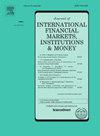重新审视央行的可信度:一项新调查的结果
IF 6.1
2区 经济学
Q1 BUSINESS, FINANCE
Journal of International Financial Markets Institutions & Money
Pub Date : 2025-09-04
DOI:10.1016/j.intfin.2025.102222
引用次数: 0
摘要
关于经济学家对央行可信度看法的文献有限,艾伦•布林德(Alan Blinder)的研究仍是开创性的。在本研究中,我们考察了自布林德首次就这一主题进行调查以来,人们对央行可信度各个方面的看法在过去20年里是如何演变的。我们将介绍2024年3月和4月对中央银行和货币经济学领域的319名专家进行的调查结果。该问卷包括原始调查中的项目,以及几个新项目,特别是与非常规货币政策对可信度、可信度测量和央行目标的影响有关的项目。结果表明,经济学家仍然认为中央银行的信誉在中央银行活动的不同方面相当重要。在这项研究中,作为央行从业人员的受访者认为,在货币政策制定方面,可信度比学者更重要。独立性、诚信历史和透明度被认为是央行可信度最重要的特征,而非常规货币政策和大规模财政扩张不被视为对可信度的威胁。这些结果为旨在制定相关政策指导方针的央行提供了重要启示。本文章由计算机程序翻译,如有差异,请以英文原文为准。
Revisiting central bank credibility: Results from a new survey
Literature on economists’ perceptions of central bank credibility is limited, with Alan Blinder’s work remaining the seminal piece. In this study, we examine how views on various aspects of central bank credibility have evolved over the past two decades, since Blinder’s first survey on this topic. We present the results of the survey conducted in March and April 2024 among 319 experts in the fields of central banking and monetary economics. The questionnaire includes items from the original survey, as well as several new ones, particularly those related to the impact of unconventional monetary policy on credibility, credibility measurement, and central bank objectives. The results indicate that economists still perceive central bank credibility as considerably important for different aspects of central bank activities. In the study, respondents who were central bank practitioners considered credibility more important for monetary policymaking than did academics. Independence, a history of honesty, and transparency were identified as the most important attributes of central bank credibility, while unconventional monetary policies and large fiscal expansions were not considered threats to credibility. These results offer important implications for central banks aiming to formulate relevant policy guidelines.
求助全文
通过发布文献求助,成功后即可免费获取论文全文。
去求助
来源期刊
CiteScore
6.60
自引率
10.00%
发文量
142
期刊介绍:
International trade, financing and investments, and the related cash and credit transactions, have grown at an extremely rapid pace in recent years. The international monetary system has continued to evolve to accommodate the need for foreign-currency denominated transactions and in the process has provided opportunities for its ongoing observation and study. The purpose of the Journal of International Financial Markets, Institutions & Money is to publish rigorous, original articles dealing with the international aspects of financial markets, institutions and money. Theoretical/conceptual and empirical papers providing meaningful insights into the subject areas will be considered. The following topic areas, although not exhaustive, are representative of the coverage in this Journal. • International financial markets • International securities markets • Foreign exchange markets • Eurocurrency markets • International syndications • Term structures of Eurocurrency rates • Determination of exchange rates • Information, speculation and parity • Forward rates and swaps • International payment mechanisms • International commercial banking; • International investment banking • Central bank intervention • International monetary systems • Balance of payments.

 求助内容:
求助内容: 应助结果提醒方式:
应助结果提醒方式:


